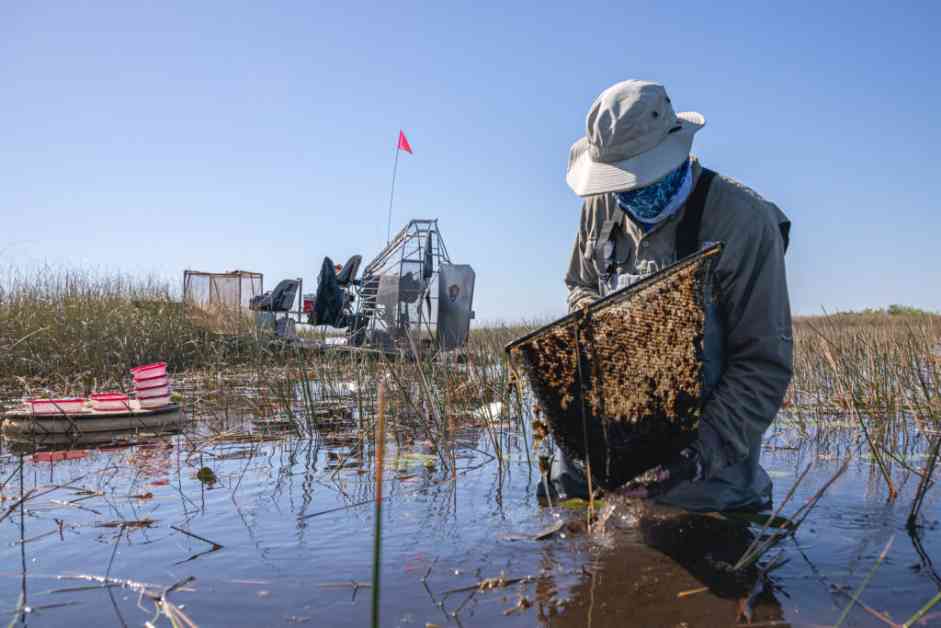Florida’s treasured waterways have long been the subject of management concerns, with the state’s agencies now facing increased scrutiny under a new legislative measure. From the renowned springs in the north to the vast Everglades in the south, the delicate balance of water supply, conservation, and flood control is under pressure due to explosive population growth, climate change impacts, and heightened storm activities.
Legislation for Transparency and Accountability
The introduction of SPB 7002 aims to enhance transparency and accountability within Florida’s five water management districts. These districts, delineated by the regions they serve, play a crucial role in managing stormwater, flood control, and overall water resources. Senate President Pro Tempore Jason Brodeur emphasizes the importance of refocusing on the districts’ core mission amidst concerns of mission creep and potential operational risks.
Brodeur underscores the need to affirm the state’s commitment to Everglades Restoration while balancing other essential priorities such as education, public safety, and healthcare. The bill seeks to address the evolving landscape of environmental restoration efforts and strengthen the districts’ ability to fulfill their original mandates effectively.
State and Federal Partnerships in Restoration Efforts
Governor Ron DeSantis’ administration has initiated a cost-cutting program akin to Elon Musk’s Department of Government Efficiency, with a focus on streamlining state operations. DeSantis advocates for Florida to assume a more significant role in the Everglades restoration, aligning with federal commitments to revitalize the watershed and secure clean water access for millions of residents.
The proposed legislation intersects with broader discussions about state-federal dynamics in restoration projects, including the potential for Florida to gain more authority over vital initiatives. Concerns arise about the implications of shifting responsibilities and resources between state and federal entities, prompting reflections on the efficiency and sustainability of restoration endeavors.
Expert Insights and Advocacy Concerns
Eve Samples, from Friends of the Everglades, raises alarms about the potential disruptions caused by altering federal-state dynamics in restoration efforts. The complexity of interwoven responsibilities and funding sources underscores the delicate balance required for successful and efficient water management practices.
Kim Dinkins, representing 1,000 Friends of Florida, emphasizes the need to maintain a nationally recognized system for managing water resources effectively. As discussions unfold around budget scrutiny and funding mechanisms, the importance of preserving the integrity and functionality of water management districts remains paramount.
Reflecting on Everglades restoration costs and timelines, the evolving nature of these projects underscores the need for strategic planning, transparent reporting, and community engagement. The blend of federal-state partnerships, legislative actions, and advocacy efforts form a tapestry of challenges and opportunities in safeguarding Florida’s precious water ecosystems.
Closing Thoughts and Call to Action
As Florida navigates the complexities of water management, Everglades restoration, and environmental stewardship, the ongoing dialogue surrounding legislative measures like SPB 7002 underscores the critical role of public engagement and policy transparency. Balancing ecological concerns with economic realities, state leaders, advocacy groups, and citizens alike must collaborate to ensure sustainable water practices for future generations.
In the realm of water management districts and restoration initiatives, the intertwined responsibilities of government entities, conservation advocates, and community stakeholders shape the trajectory of Florida’s environmental legacy. By fostering dialogue, promoting accountability, and embracing innovation, the Sunshine State can chart a course towards resilient water systems and thriving natural habitats.
Amy Green, an experienced journalist and author based in Orlando, Florida, captures the essence of these complex environmental narratives, weaving together the threads of policy, advocacy, and ecosystem preservation. Through her insightful reporting on the Everglades and climate change impacts, Green sheds light on the challenges and opportunities facing Florida’s water landscapes. As we navigate the waters of change and conservation, her work serves as a beacon of knowledge and inspiration for all who seek to protect our planet’s most precious resource—water.














